Networking research and economy
Within the framework of funded projects, we support companies in upgrading the qualifications of their employees. In doing so, we draw on the entire range of topics of applied research and expertise of Graz University of Technology in order to identify needs together with corporate partners and to develop scientifically sound, application-oriented and customized programs. In this way, very concrete subject-specific courses and training courses are created, which convey current know-how and help to close competency gaps.
In addition, we work with other educational institutions to devise and develop packages of measures and centers of excellence that promote and create sustainable education and training programs at regional, national and EU-wide level.

- Greenovet, 2020 – 2024
- DIH Süd – Digital Innovation Hub Süd, 2021 – 2024
- InnovationsCamp – DeCarb, 2022 – 2024
- ReBUsk – Reboot BUILD UP Skills Austria, 2022 – 2024
- Design4SusMan, 2023 – 2025
- SME5.0, 2023 – 2026
- EE4M, 2023 – 2027
- GreenChips-EDU, 2023 – 2027
- TRANSFORM, 2024 – 2025
- CIDEAL, 2025 – 2026
- UNITE European University Alliance
TU Graz Life Long Learning
Münzgrabenstraße 36/I
8010 Graz
lifelong.learning@tugraz.at
TRANSFORM
The SILICON ALPS Cluster, consisting of around 130 leading companies in the semiconductor industry and microelectronics, has launched the "TRANSFORM" educational initiative in cooperation with Graz University of Technology LLL and other technical universities. The aim is to support the companies on their way to becoming a leading technology region and to establish the location for EBS technologies. Electronic Based Systems (EBS) are components, devices and systems with micro- and nanoelectronics as well as the associated embedded software. In view of global challenges such as geopolitical shifts and demographic change, the initiative aims to specifically promote innovative skills, particularly in the area of "Power Cyber Physical Systems" and digitalisation, in order to equip companies for the future. The "TRANSFORM" training initiative comprises seven modules and three training levels that are flexibly tailored to the needs of companies and participants. Close cooperation with universities and an innovative micro-learning module are key components of this pioneering educational initiative.
- Period: 1 April 2024 to 31 August 2025
- Funding body: FFG (Federal Ministry of Labor and Economy) - Innovation Camp
- Goal: Strengthening the EBS (Electronic Bases Systems) industry in the southern region of Austria through targeted training in the field of digitalisation, especially in the area of "Power Cyber Physical Systems"
- Consortium management: TU Graz Life Long Learning
- Scientific partners: 5
- Corporate partners: 16
- Qualified participants: 130 employees of the partner companies
- Contact person: Maria Jandl
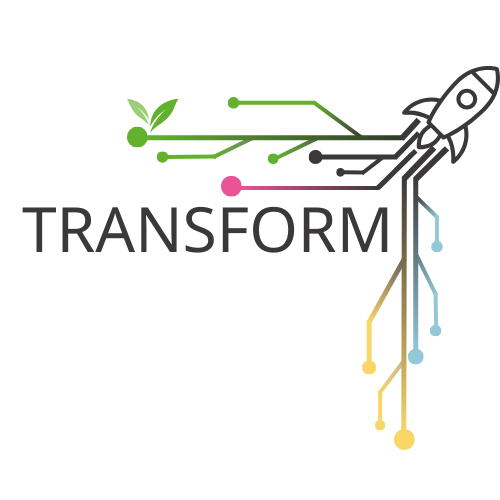
DeCarb
The EU's Green Deal, with its goal of climate neutrality, also places an obligation on companies. In order to be able to perceive the associated "change" challenges as opportunities in the direction of competitive advantage, the innovative strength of employees and their technological know-how in this area is in great demand.
As part of the DeCarb project (Empowering enterprises towards zero carbon - from science to action), the need for holistic, implementation-oriented training is being addressed and company representatives are being given higher qualifications in the areas of "Energy & Green Production", "Sustainable Buildings", "Corporate Mobility" and "Sustainability and Change Management".
Period: 01 September 2022 - 31 August 2024
Sponsor: Qualification offensive of the Federal Ministry of Labor and Economy (BMAW) , Austrian Research Promotion Agency (FFG).
Goal: Implementation of an innovative, implementation-oriented learning format to qualify employees from 10 partner companies and build a best practice community in the field of decarbonization and climate neutrality.
Scientific partners:
TU Graz
- Science, Technology and Society Unit
- Institut für Fahrzeugtechnik
- Institut für Fertigungstechnik
- Institut für Tragwerksentwurf
Montanuniversität Leoben
- Lehrstuhl für Energieverbundtechnik
- Corporate partners:
- Armacell Austria GmbH
- AT&S Austria Technologie & Systemtechnik AG
- Axtesys GmbH
- EL&KA Technik e.U.
- ELSTA-Mosdorfer GmbH
- EUDT Energie- u. Umweltdaten Treuhand GmbH
- GUEP Software GmbH
- MAGNA STEYR Fahrzeugtechnik GmbH & Co KG
- Siemens AG Österreich
- Stoelzle Oberglas GmbH
- Contact person: Maria Jandl
![Projekt Decarb Bildquelle Wolfgang Adobe Stock [Translate to Englisch:] Industrie Schornsteine blauer Himmel](https://www.tugraz.at/fileadmin/user_upload/tugrazInternal/Studium/Studienangebot/Universitaere_Weiterbildung/LLL_Mediathek/Sujetbild-fuer-Projekt-Decarb-Bildquelle-Wolfgang-Adobe-Stock.jpg)
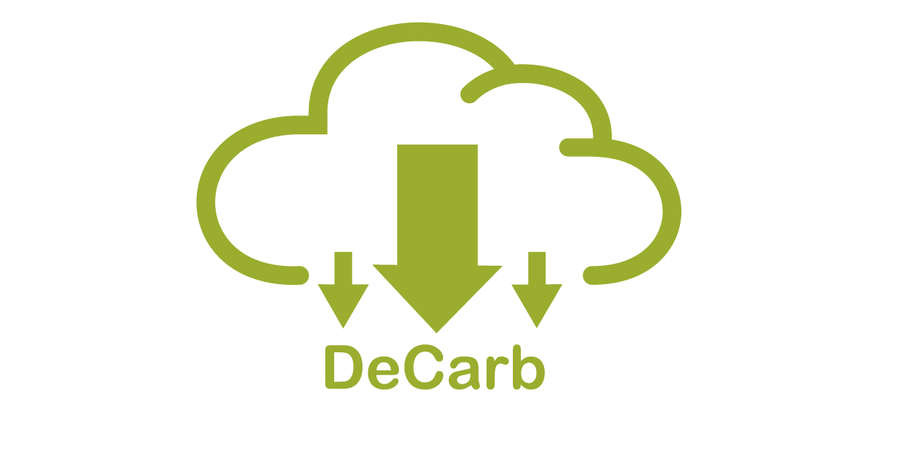
GreenChips-EDU
The EU-funded project "GreenChips-EDU" brings together seven European universities and eight industry and research organizations to develop a joint educational program in electrical engineering and microelectronics. The goal is to strengthen the European microelectronics industry and train qualified engineers and technicians. Six universities are part of the "Unite!" alliance and focus particularly on digital content and interactive teaching formats to inspire young people for microelectronics and promote the sustainable development of microchips.
The project builds on existing master's programs and supplements them with online courses. Students can specialize in sustainable chip production, write theses in "green electronics," and participate in summer academies, hackathons, and makerspaces. Six universities offer double degrees. The content will be made available on the Unite! platform Metacampus, with courses offered in hybrid formats and events live-streamed and recorded.
The aim is to develop self-directed modules that can be completed at any time. Additionally, continuing education measures for industry professionals will be offered, ranging from short modules to MBA programs.
- Duration: October 1, 2023, to September 30, 2027
- Project partners: 15 (from 7 European countries)
- Funding: EU, Digital Europe Programme (DIGITAL)
Project Partners
Academic Partners:
- Graz University of Technology (AT)
- Carinthia University of Applied Sciences (AT)
- Technical University of Darmstadt (DE)
- Grenoble Institute of Technology (FR)
- Politecnico di Torino (IT)
- Polytechnic University of Catalonia (ES)
- Instituto Superior Técnico (PT)
- INESC ID – Institute for Systems and Computer Engineering: Research and Development in Lisbon (PT)
Industry Partners:
- Silicongate LDA (PT)
- KONČAR Electronics and Informatics Inc. (HR)
- Infineon Technologies AG (AT)
- Aedvices - Application Engineering, Design and Verification in ICs and Embedded Systems (FR)
- Ace With You (FR)
- R.U.S.Z – Repair and Service Center (AT)
- Business Konsens (AT)
Contact Person: Helmut Aschbacher
- Address qualification needs: Offer bachelor's and master's programs, MOOCs, MBA modules, summer schools, sustainability hackathons, maker spaces, and learning repair cafés.
- Attract qualified teachers and students: Promote staff exchange programs, internships, summer schools, hackathons, double degree programs, student mobility, and scholarships.
- Modernize digital solutions and infrastructure: Ensure interoperability of IT systems between participating universities, provide access to advanced IC design infrastructure, IC manufacturing facilities, and chip lab tests, establish a shared CAD infrastructure, and implement a shared testing platform.
- Build sustainable partnerships: Strengthen the network through harmonized educational programs and joint activities of all consortium members.
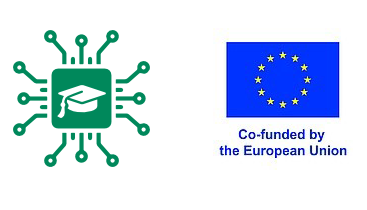
Design4SusMan
The Des4SusMan project aims to develop a 2-year joint master's degree program on the topic of "Digital and Sustainable Manufacturing" to train students in the fields of mechanical engineering, manufacturing and management and also to provide them with intercultural skills. Graduates of the master's program should be able to master the major challenges facing the EU. These include, in particular, the megatrends of digitalization in manufacturing companies as well as the social/ethical and climatic/ecological challenges of sustainability, which play or will play a central role in current and future EU policy. Both the theme and the dual-track structure are new to the European Higher Education Area and will support the EU's move towards a smart and sustainable future-oriented curriculum.
- Period: 01 October 2023 - 31 December 2025
- Funding body: EU
- Goal: Application for Erasmus Mundus Degree Program
- Scientific partners:
- Italy: Free University of Bozen-Bolzano / Free University of Bozen-Bolzano (Lead).
- Romania: Polytechnic University of Bucharest
- Portugal: Polytechnic of Porto - School of Engineering
- Contact person: Corina Pacher
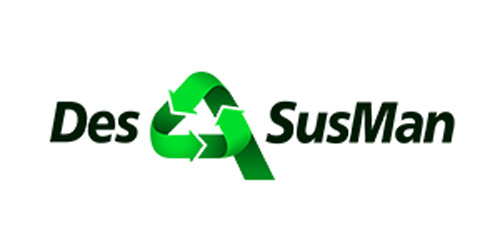
SME5.0
The future major challenge for SMEs will be the implementation of the double transformation (digital and sustainable). This needs to be accelerated to improve economically, socially and environmentally sustainable processes, factories and value chains. SME5.0 helps SMEs get to this next level by developing a strategic roadmap that makes them not only smart, but also sustainable, resilient and people-centric. This next stage of SME will be data- and intelligence-driven, meaning it will use available data to gain new insights and optimize them in a safe way using artificial intelligence. There will also be a strong focus on how production and value chains in SMEs can become more circular, environmentally friendly and resilient by taking into account ethical, human and societal values for more sociocentric factories. In addition to identifying future work profiles and competencies of SME employees, guidelines are being developed to make SME workplaces in industry more inclusive and diverse.
- Period: 01 January 2023 - 31 December 2026
- Funding body: EU / Marie Sklodowska-Curie Actions (MSCA)
- Goal: A strategic roadmap for the next level of smart, sustainable and people-centric SMEs.
- Scientific partners:
- Europe:
Italy: Free University of Bozen-Bolzano / Free University of Bozen-Bolzano (Lead).
Germany: Technical University of Munich / Technische Universität München
Sweden: Royal Institute of Technology / Kungliga Tekniska Högskolan KTH
Slovakia: Technical University of Kosice / Technická univerzita v Košiciach
Austria: University of Leoben / Montanuniversität Leoben - International:
Thailand: Chiang Mai University
Australia: Deakin University
America: Indiana University - Purdue University of Fort Wayne
America: Worcester Polytechnic Institute
Argentina: Salvador University / Universidad del Salvador
South Africa: University of Stellenbosch
- Europe:
- Contact person: Corina Pacher
EE4M - Engineering Excellence for the Mobility Value Chain
EE4M addresses the increasing needs for training, re-, and upskilling of engineers in the mobility value chain from raw material to recycling and back into the loop. In recent years, the mobility value chain in Europe is significantly influenced by a multitude of hyper-dynamic factors, like changing consumer behavior, disruptive technologies, the need for decarbonization initiatives, hyperlocal mobility, etc. which leads to the fact that a continuous realignment of engineering education is indispensable for the long-term success. EE4M focuses on operations management (OM) as the main area of activity for engineers in the mobility value chain which is changing due to the two predominant drivers “Industry 4.0” (smart OM) and “Sustainability” (sustainable OM).
EE4M focuses on the professional development of smart and sustainability competences of engineers in the mobility value chain through innovative vocational educational modules supported by a transnational platform between the main drivers of the European mobility value chain (Austria, Greece, Italy, Spain). The innovation of EE4M can be explained by the fact that the entire value chain in the mobility sector serves as the basis for the empirically-based realignment of engineering education to create requirement-orientated competence profiles. During the EE4M project, more than 1,000 VET teachers/trainers, practitioners, and students from all over Europe within EQF levels 4-8 will be enabled to acquire transdisciplinary skills in the field of smart and sustainable OM through innovative teaching and learning environments.
A foundation for inclusive and borderless European VET education is to be laid to produce competent and well-trained VET students, graduates/professionals, and teachers. Boosting (inter)national skills ecosystems will successfully increase European competitiveness and employability, professionalize the European VET engineering education, and contribute to economic, ecologic, and social wellbeing.
- Period: 15 June 2023 - 14 June 2027
- Funding body: EU / EACEA
- Goal: Development and establishment of a centre of excellence for engineering pedagogy for the value chain in the mobility sector
- Scientific partners:
-
-
-
- Austria:
- TU Graz (UFO/BWL/LLL)
- Montanuniversität Leoben (MUL) – LEAD
- HTBLA Wolfsberg
- Österr. Verband der Wirtschaftsingenieure (WING)
- Spain:
- University of Mondragon (MPEG)
- Volkswagen Navarra
- Tracasa
- Cuatrovientos (CIC)
- Italy:
- Free University of Bozen/Bolzano (UNIBZ)
- Technische Fachoberschule Bruneck
- Technische Fachoberschule Bozen
- Fraunhofer Italia
- Noi Techpark
- Greece:
- National Technical University of Athens (NTUA)
- WIND
- Austria:
-
-
- Qualified persons: more than 1000 students, teachers and alumni
- Contact person: Corina Pacher
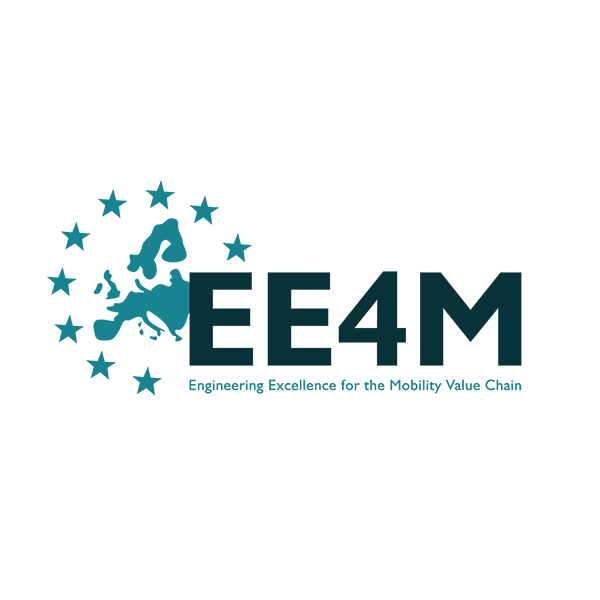
![[Translate to Englisch:] Projekt SME50 Bildquelle chaylek Adobe Stock [Translate to Englisch:] Hände arbeiten am Laptop Hologram](https://www.tugraz.at/fileadmin/_processed_/e/0/csm_Projekt-SME50-Bildquelle-chayled-Adobe-Stock-bea_fc13510abc.jpg)

